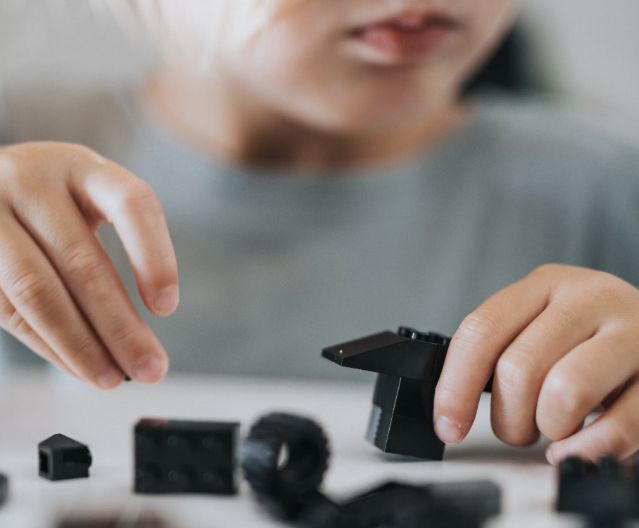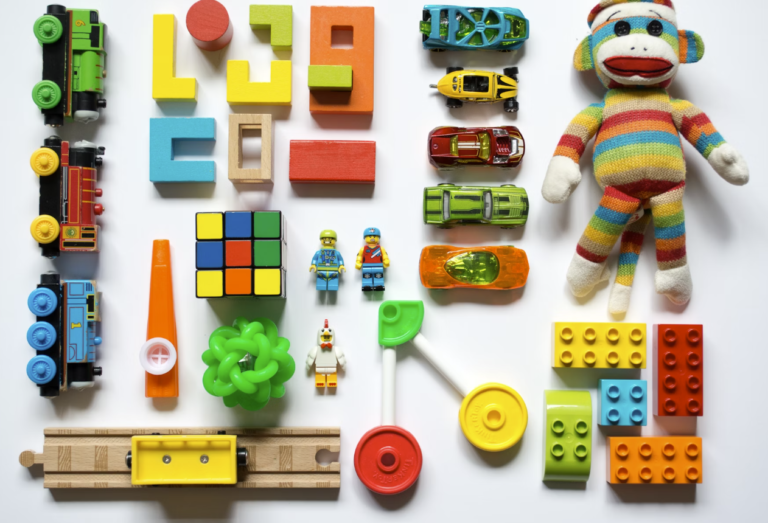Parenting styles play a crucial role in shaping the future of our children. As a parent, you want to ensure that you are making the right choices and providing the best environment for your child’s growth and development. In modern America, different parenting styles have emerged, each with its own set of beliefs and practices. But which one is most encouraged in today’s society? In this article, we will explore the various parenting styles prevalent in modern America and shed light on the style that is widely embraced and encouraged by experts and communities alike. So, let’s dive in and discover the parenting style that can help you raise happy, confident, and successful children in today’s world.
In our fast-paced and ever-changing society, it can be overwhelming to navigate the world of parenting. From authoritative to permissive, helicopter to free-range, there are numerous parenting styles to choose from. However, it’s important to understand that not all styles are equally encouraged in modern America. With advancements in research and evolving societal norms, certain parenting styles have gained more popularity and recognition. In this article, we will explore the parenting styles that are most encouraged in modern America and why they are considered beneficial for the overall well-being of children. So, if you’re curious about which parenting style aligns with the values and goals of today’s society, keep reading to find out.
Key Takeaways
- Parenting styles in modern America play a significant role in shaping children’s behavior, emotions, and overall development.
- Different parenting styles prevalent in modern America include authoritarian, permissive, authoritative, uninvolved, helicopter, and free-range parenting.
- Authoritative parenting is the most encouraged and widely embraced style in modern America, as it promotes healthy boundaries, clear communication, and a nurturing environment for children to thrive.
- Authoritarian parenting, characterized by strict rules and high expectations, is less encouraged due to negative impacts on children’s self-esteem, social skills, and independence.
- Permissive parenting, emphasizing leniency and indulgence, can lead to challenges in self-discipline, entitlement, and poor self-regulation.
- Both helicopter parenting, which involves overprotectiveness and excessive involvement, and free-range parenting, which promotes independence and freedom, have their own merits and drawbacks. Finding a balance between involvement and independence is crucial for healthy child development.
Different Parenting Styles in Modern America
When it comes to parenting, there is no one-size-fits-all approach. In modern America, there are various parenting styles that individuals adopt based on their beliefs and values. These parenting styles not only shape the upbringing of children but also influence their behavior, emotions, and overall development.
Here are some of the different parenting styles that you may come across in modern America:
1. Authoritarian Parenting
Authoritarian parenting is characterized by strict rules, high expectations, and a disciplinary approach. In this style, parents have a firm control over their children’s lives and expect obedience without question. They often use punishment as a means of maintaining control and shaping their children’s behavior.
2. Permissive Parenting
On the other end of the spectrum, permissive parenting is characterized by a laid-back and laissez-faire approach. Parents who adopt this style tend to be lenient and allow their children to have more freedom and independence. They may hesitate to set clear boundaries and often avoid discipline.
3. Authoritative Parenting
Authoritative parenting is widely embraced and encouraged in modern America. It strikes a balance between being demanding and responsive. Parents who adopt this style set clear expectations and rules, but also value their child’s independence and opinions. They establish open communication and encourage their children to express themselves.
4. Uninvolved Parenting
As the name suggests, uninvolved parenting is characterized by neglect and lack of involvement in a child’s life. Parents who adopt this style may be emotionally unavailable or may not prioritize their child’s needs. They often provide minimal supervision and guidance, which can have negative effects on a child’s overall well-being.
Each parenting style has its own set of beliefs, practices, and potential impacts on children. However, authoritative parenting is most encouraged in modern America. This style promotes healthy boundaries, clear communication, and a nurturing environment for children to thrive. Research has shown that children raised by authoritative parents tend to have higher self-esteem, better academic performance, and better social skills.
Authoritarian Parenting Style
When it comes to parenting styles in modern America, the authoritarian approach has been observed to be less encouraged compared to others. This style of parenting is characterized by strict rules, high expectations, and a demanding attitude. Parents who adopt this style tend to have a “my way or the highway” approach to raising their children.
In authoritarian households, parents expect unquestioning obedience from their children. They establish strict rules and regulations without much room for negotiation or flexibility. Discipline is often enforced through punishment rather than positive reinforcement. The focus is on controlling the child’s behavior and ensuring immediate compliance.
While authoritarian parenting may seem effective in maintaining order and discipline, research suggests that it can have negative consequences on a child’s development. Children raised under authoritarian parenting styles tend to have lower self-esteem, poorer social skills, and difficulty making independent decisions. They may also experience increased levels of anxiety and fear due to the strict nature of their upbringing.
Furthermore, authoritarian parenting often lacks open communication between parents and children. The emphasis on obedience and compliance may hinder the child’s ability to express their thoughts, emotions, and opinions freely. This can have long-term effects on their confidence, ability to articulate themselves, and build healthy relationships.
Despite the potential drawbacks, it’s important to note that every parenting style has its unique strengths and weaknesses. What works for one family may not work for another. Ultimately, the key is to find a balance that promotes the overall well-being and growth of the child.
Remember, as a parent, it’s crucial to reflect on your approach and consider the impact it may have on your child. Striving for open communication, setting clear expectations, and providing a nurturing environment can contribute to the development of healthy parent-child relationships and positively shape your child’s future.
Permissive Parenting Style
Permissive parenting is another prevalent parenting style in modern America. It is characterized by a relaxed and lenient approach towards parenting, with minimal rules and regulations. Parents who adopt this style tend to be indulgent and avoid imposing strict boundaries or expectations on their children.
In permissive parenting, parents often prioritize their child’s happiness and desires over discipline and structure. They tend to be more friendly and accepting, allowing their children to have a lot of freedom in decision-making and behavior. They may avoid confrontation and conflicts in order to maintain a harmonious relationship with their child.
While permissive parenting can create a positive and nurturing environment, it may have some drawbacks as well. Here are a few key points to consider:
- Lack of discipline: With fewer rules and boundaries, children raised in permissive households may struggle with self-discipline and have difficulty following rules outside the home.
- Entitlement: The lack of structure can sometimes lead to a sense of entitlement in children, as they may not have experienced the consequences of their actions.
- Poor self-regulation: Children who grow up in permissive households may have difficulty regulating their own behavior and emotions, as they have not been taught the necessary skills for self-control.
- Inconsistent expectations: Inconsistent parenting can also be a challenge in permissive households. Without clear guidelines, children may become confused about what is expected of them.
It’s important to note that while permissive parenting has its drawbacks, it doesn’t mean that every child who grows up with permissive parents will face negative consequences. Each child is unique and may respond differently to parenting styles.
The key is to find a balance between providing love and support while also setting reasonable limits and expectations. Open communication, consistency, and a nurturing environment are crucial for maintaining a healthy parent-child relationship and promoting a child’s holistic development.
Authoritative Parenting Style
When it comes to parenting styles in modern America, one style that is widely encouraged and embraced is authoritative parenting. This style strikes a balance between setting clear expectations for children while also valuing their independence and opinions.
Authoritative parents are known for being responsive and nurturing, while also maintaining reasonable boundaries and discipline. They create a structured and supportive environment where children can thrive and develop essential life skills.
Unlike authoritarian parents who tend to be strict and controlling, authoritative parents focus on fostering open communication and mutual respect with their children. They are willing to listen to their child’s thoughts and opinions, which helps in building a strong foundation of trust.
One hallmark of authoritative parenting is the use of positive reinforcement and logical consequences to guide children’s behavior. Instead of harsh punishments or arbitrary rules, authoritative parents seek to teach their children reasons and logic behind their actions. This approach helps children understand the consequences of their choices and develop problem-solving skills.
Research has shown that children raised by authoritative parents tend to have higher self-esteem, better academic performance, and better social skills compared to those raised under other parenting styles. They also exhibit greater emotional regulation and are more likely to have positive relationships with their peers.
While authoritative parenting is highly encouraged, it’s important to remember that each child is unique and may respond differently to various parenting styles. Finding the right balance between setting expectations and allowing independence is key. Open communication, consistency, and a nurturing environment remain crucial for maintaining a healthy parent-child relationship and promoting a child’s holistic development.
Authoritative parenting style is widely embraced and encouraged in modern America due to its balanced approach of setting clear expectations while valuing a child’s independence and opinions. It creates an environment where children feel supported, respected, and guided, providing them with the necessary tools to become confident and well-rounded individuals.
Helicopter Parenting Style
Helicopter parenting is one of the more restrictive and involved parenting styles that are prevalent in modern America. It refers to parents who are overly attentive to their children’s needs and activities, constantly hovering over them and monitoring every aspect of their lives.
Characteristics of Helicopter Parenting
- High levels of involvement: Helicopter parents are highly involved in their children’s lives, often to the point of micromanaging. They tend to closely monitor their children’s activities, such as schoolwork, extracurriculars, and social interactions.
- Overprotection: These parents have a strong desire to protect their children from any potential harm or failure. They tend to intervene and solve problems for their children, often preventing them from experiencing challenges and learning important life lessons.
- Lack of independence: Because helicopter parents are so involved and protective, their children may struggle with developing independence and problem-solving skills. They may become overly reliant on their parents for decision-making and struggle with making choices on their own.
Effects of Helicopter Parenting
While helicopter parenting stems from the desire to provide the best for their children, it can have negative effects on their development and well-being:
- Lack of resilience: Children who grow up with helicopter parents may struggle with resilience and coping skills. They haven’t had the opportunity to face and overcome challenges on their own, making it difficult for them to handle setbacks in the future.
- Dependency: Helicopter parenting can foster dependency in children, as they may rely on their parents to make decisions and solve problems for them. This can inhibit their ability to develop important life skills and navigate independence as they grow older.
Balancing Involvement and Independence
While there is no one-size-fits-all approach to parenting, finding a balance between involvement and independence is crucial. It is important for parents to be supportive and involved in their children’s lives, but it’s equally important to allow them the space to learn and grow on their own.
Encouraging independence and fostering resilience can be achieved by:
- Gradually giving children more responsibility and allowing them to make decisions within appropriate boundaries.
- Encouraging problem-solving and providing guidance instead of immediately solving problems for them.
- Allowing children to experience natural consequences of their actions and learn from their mistakes.
By finding this balance, parents can help their children develop important life skills, independence, and resilience that will serve them well in the long run.
Free-Range Parenting Style
In addition to the previously mentioned parenting styles, another approach that has gained some attention in recent years is the Free-Range Parenting style. This parenting style is characterized by allowing children to have a greater sense of independence and freedom.
Free-Range parents believe in giving their children opportunities to explore and experience the world on their own. They encourage children to take risks, learn from their mistakes, and develop their problem-solving skills. This approach is rooted in the belief that children learn best when they have the freedom to make choices and experience both successes and failures.
One of the key principles of Free-Range parenting is trust. Free-Range parents trust their children to make wise decisions and learn from their experiences, even if it means allowing them to face certain risks. They believe that by giving children more freedom and responsibility, they are equipping them with the skills and resilience needed to navigate the challenges of adult life.
While the Free-Range parenting style has its merits, it’s important to note that it’s not without its controversies. Critics argue that it may expose children to unnecessary dangers and risks. However, proponents argue that by allowing children the freedom to explore and learn from their mistakes, they are helping them develop important life skills and independence.
Ultimately, the decision to embrace a Free-Range parenting style or not is a personal one. It’s essential to consider your child’s individual temperament and capabilities. Every child is different, and what works for one may not work for another. The key is finding a balance between providing guidance and support while allowing children the freedom to learn and grow on their own.
Remember, the goal of parenting is to raise confident, independent, and well-rounded individuals. By exploring different parenting styles and finding what works best for your family, you can create an environment that fosters your child’s development and prepares them for a successful future.
Conclusion
In modern America, parenting styles play a crucial role in shaping the development and well-being of children. This article explored four main parenting styles: authoritarian, permissive, authoritative, and uninvolved. While each style has its own merits and drawbacks, authoritative parenting is widely encouraged due to its balanced approach of setting clear expectations while respecting a child’s independence and opinions.
The article also discussed the permissive parenting style, characterized by a relaxed approach and minimal rules. On the other hand, helicopter parenting, marked by overprotectiveness and excessive involvement, can hinder a child’s independence and problem-solving skills. The controversial Free-Range parenting style, which emphasizes independence and trust, has its proponents and critics.
Finding the right balance between involvement and independence is crucial in parenting. Allowing children to explore and learn from their experiences while providing guidance and support is essential for their growth and development.
Remember, there is no one-size-fits-all approach to parenting. Understanding the different styles and their impacts can help you make informed decisions that align with your values and your child’s needs. Ultimately, the goal is to raise confident, resilient, and independent individuals who can thrive in the modern world.
Frequently Asked Questions
What are the different parenting styles discussed in the article?
The article discusses four main parenting styles: authoritarian, permissive, authoritative, and uninvolved.
Why is authoritative parenting widely embraced in modern America?
Authoritative parenting is widely embraced in modern America because it balances setting clear expectations with valuing a child’s independence and opinions.
What is permissive parenting?
Permissive parenting is characterized by a relaxed and lenient approach towards parenting, with minimal rules and regulations.
What is helicopter parenting?
Helicopter parenting is characterized by overprotectiveness and high levels of involvement. Helicopter parents closely monitor their children and tend to intervene and solve problems for them.
What are the negative effects of helicopter parenting?
Helicopter parenting can lead to a lack of resilience and dependency in children, as they are not given opportunities to develop independence and problem-solving skills.
What is Free-Range parenting?
Free-Range parenting allows children to have a greater sense of independence and freedom. Parents believe in giving their children opportunities to explore and experience the world on their own.
What are the controversies surrounding Free-Range parenting?
Critics argue that Free-Range parenting may expose children to unnecessary dangers and risks. However, proponents believe that it helps children develop important life skills and independence.
What is the importance of finding a balance between involvement and independence in parenting?
Finding a balance between involvement and independence allows children to learn and grow on their own, while still receiving guidance and support from parents. This helps them develop important life skills and independence.





